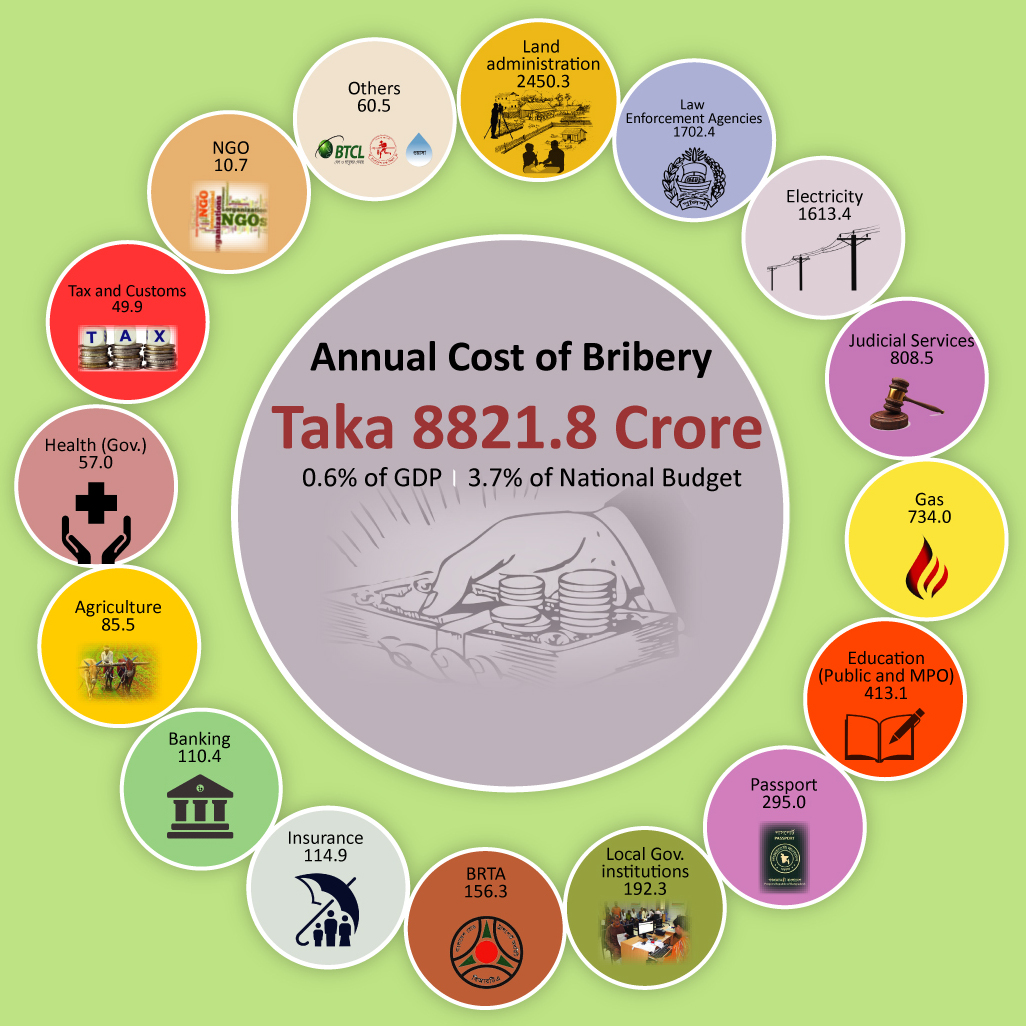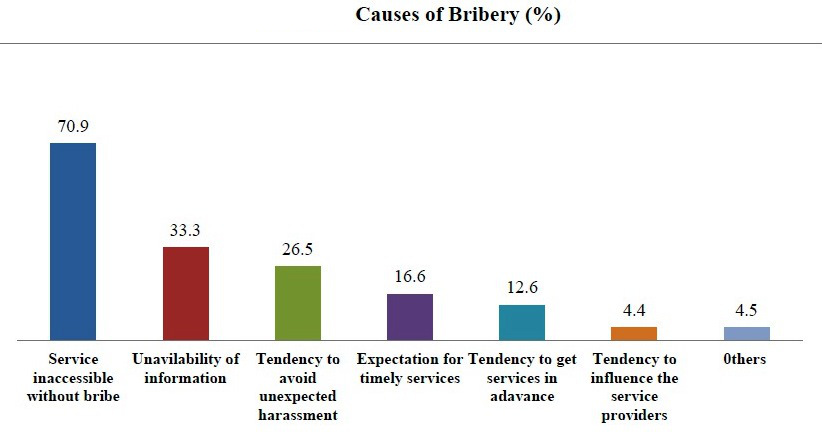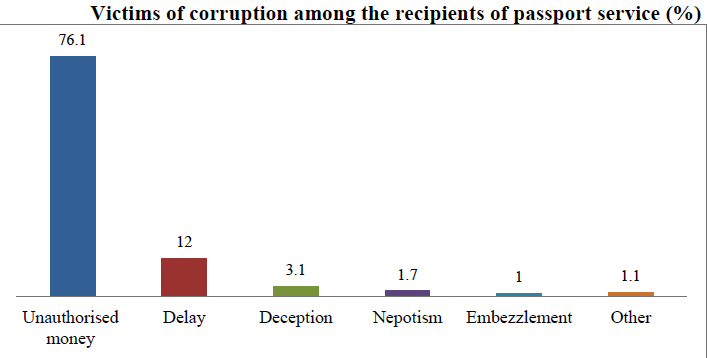Published: 29 June 2016


Published: 29 June 2016
 A report of Transparency International Bangladesh (TIB) titled ‘Corruption in Service Sectors: National Household Survey 2015’ released today said some 67.8% households became victims of corruption last year while some 58.1% had to pay bribe at an average of Taka 4538.00. While the rate of corruption and harassment (67.8% versus 67.3%) in 2015 remained almost same in comparison to 2012, however, the households had to pay additional 1500 crore taka compared to 2012.
A report of Transparency International Bangladesh (TIB) titled ‘Corruption in Service Sectors: National Household Survey 2015’ released today said some 67.8% households became victims of corruption last year while some 58.1% had to pay bribe at an average of Taka 4538.00. While the rate of corruption and harassment (67.8% versus 67.3%) in 2015 remained almost same in comparison to 2012, however, the households had to pay additional 1500 crore taka compared to 2012.  Using the Community Series of Bangladesh Bureau of Statistics (BBS), TIB’s Research and Policy team conducted the survey through a three-stage Stratified Cluster Sampling method. Collecting data from November 1 to December 25 in 2015, the survey collected information on corruption and harassment covering the period from November 2014 to October 2015. An advisory committee comprising nationally and internationally reputed experts provided guidance to ensure quality and validity of this survey, conducted among 15,206 households. Data was collected from 10,783 rural households (70.6%) and 4,663 urban households (29.4%) covering 64 districts and Dhaka and Chittagong City Corporations.
Using the Community Series of Bangladesh Bureau of Statistics (BBS), TIB’s Research and Policy team conducted the survey through a three-stage Stratified Cluster Sampling method. Collecting data from November 1 to December 25 in 2015, the survey collected information on corruption and harassment covering the period from November 2014 to October 2015. An advisory committee comprising nationally and internationally reputed experts provided guidance to ensure quality and validity of this survey, conducted among 15,206 households. Data was collected from 10,783 rural households (70.6%) and 4,663 urban households (29.4%) covering 64 districts and Dhaka and Chittagong City Corporations.  Although the overall rate of corruption remained unchanged, corruption has decreased in land administration, judicial services, health, banking, NGO and other sectors but increased in local government, electricity and insurance. It was unchanged in education, law enforcement agencies, agriculture and tax and tariff sectors. Compared to 51.8% households that fell victim of bribery in 2012, the rate in 2015 increased to 58.1% in 2015, However, the rate of bribery is decreased in six sectors including health, judicial service and land administration. It increased in education, electricity and NGO sector. The rate of bribery in law enforcement agencies, agriculture, tax and tariff and other sectors is unchanged. Across location, corruption victimization is higher in rural areas in comparison to urban areas (62.6% versus 69.5%). Similarly, the rate of bribery is also higher in rural areas (53.4% versus 59.6%).
Although the overall rate of corruption remained unchanged, corruption has decreased in land administration, judicial services, health, banking, NGO and other sectors but increased in local government, electricity and insurance. It was unchanged in education, law enforcement agencies, agriculture and tax and tariff sectors. Compared to 51.8% households that fell victim of bribery in 2012, the rate in 2015 increased to 58.1% in 2015, However, the rate of bribery is decreased in six sectors including health, judicial service and land administration. It increased in education, electricity and NGO sector. The rate of bribery in law enforcement agencies, agriculture, tax and tariff and other sectors is unchanged. Across location, corruption victimization is higher in rural areas in comparison to urban areas (62.6% versus 69.5%). Similarly, the rate of bribery is also higher in rural areas (53.4% versus 59.6%).  Aimed at measuring the nature and extent of corruption and harassment experienced by the households in getting various public services, the survey report also put forward a number of recommendations to prevent and control corruption. These included, among others: bringing corrupt people to justice; ensuring transparency and accountability in service-providing institutions by strictly adhering to code of conduct, enhancing participation and communication of local people in service sectors; arranging public hearing; providing penalty or reward for employees according to their performance, strengthening social movement to prevent corruption and increasing manpower, infrastructure, and logistics at various service providing institutions.
Aimed at measuring the nature and extent of corruption and harassment experienced by the households in getting various public services, the survey report also put forward a number of recommendations to prevent and control corruption. These included, among others: bringing corrupt people to justice; ensuring transparency and accountability in service-providing institutions by strictly adhering to code of conduct, enhancing participation and communication of local people in service sectors; arranging public hearing; providing penalty or reward for employees according to their performance, strengthening social movement to prevent corruption and increasing manpower, infrastructure, and logistics at various service providing institutions.Copyright © 2025 Transparency International Bangladesh